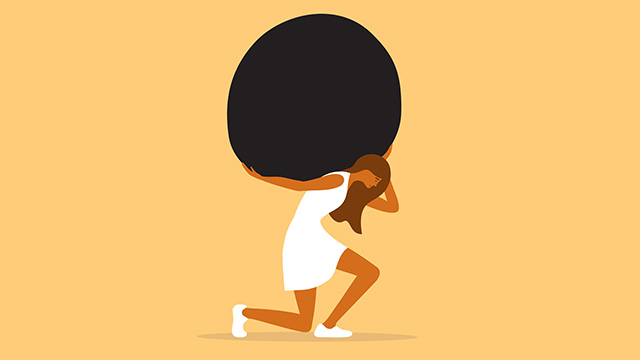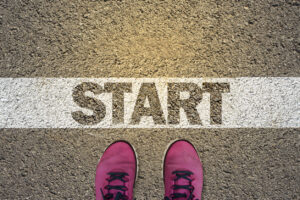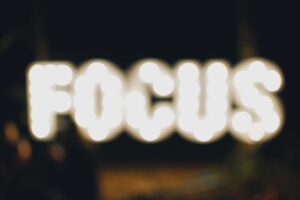Part One of a Series
Do you genuinely care about the people in the team or organization that you lead? One of the messages readers have found most affirming in my new book, What Leaders Need Now, is the idea that compassion is a legitimate and essential leadership quality in a world in which the majority of employees are “quiet quitting” (not engaged), according to Gallup’s 2023 Global Workplace report. One client put it simply: “Times have changed, and people need people who actually care.” Many of us have, unfortunately, been taught that tough-mindedness and objectivity were required for leaders to command focus on results, and still today we hear experts debating whether emotions belong in the workplace. Good grief, humans work here, and humans have emotions.
Those who practice compassion for others, though, sometimes face a reckoning with themselves. We simply cannot give more than we have. You may be a person, or know a person, who is a seemingly selfless giver. They (or you), appear to have unlimited energy for helping others. What’s not always evident is the degree of kindness or compassion with which they treat themselves or deprive themselves. In my book, I describe three “thieves” of self-compassion: The critic, the perfectionist, and the ruminator. Almost all of us have one or more of these personas operating within us, weighing us down, thus making the journey of life that much heavier and more difficult. In this post, I’ll describe a bit of my personal journey of becoming acquainted with and transforming my own self-critic. In this series, I’ll present insight I’ve gained helping clients lighten their load and develop more self-compassion.
I’m no stranger to heavy burdens. It’s what I used to think of as a favorable personality trait: high challenge, bring it on; nothing’s too tough, complicated or exhausting for me. For much of my life, I credited that part of me for most of what I had achieved externally: a successful career, business, and life. What I didn’t admit until my late fifties was that a critical voice inside of me—a sub-part of my personality, if you will—was running my life. I had been carrying thoughts about myself that no longer served me, and these thoughts weighed as heavily on my psyche as the computer bag I carried six miles through an Atlanta snow and ice storm one January day weighed on my arm and shoulder.
In January of 2014 I began a series of blog posts entitled, “The Way I Carry Things,” precipitated by the events of Atlanta’s epic “Snowmageddon” in which I was an active participant. The first two were funny yet poignant recounts of how I often made choices from a lack of mindfulness, choices that were not always in service of my own well-being. At the time, a dear friend suggested the posts might be better titled, “The Things I Carry.” I replied to him with what now seems a sarcastic follow-up post. In it, I suggested that the burdens I carried were uniquely mine, like treasures in boxes in my basement, and yet unlike no-longer-needed physical “treasures” (junk?), the thoughts I held so deeply would be much more difficult to release, should I choose to embark on that project sometime in the future.
Fast forward five or six years. Another storm was upon us, though one much lengthier than the 24-hour “Snowpocalypse” of Atlanta, as it was also called. In 2020, the world seemed unusually cruel. A global pandemic ensued. My mother passed away. All manner of normal no longer existed in our micro lives or the macro world. Yet my inner critic still spoke to me.
As I, along with a group of colleagues, was searching for what we could do to help beleaguered clients at this most difficult time, it became clear to us that empathy and its active cousin compassion was one thing that was needed. That has now been validated by a plethora of data. At that same time, I realized that what I needed was a very strong dose of self-compassion. I was ready to look at the things I was carrying. The load was heavy.
In my book, I identify three leadership practices that form an essential cycle of growth. With the help of a trusted coach, I immersed myself in this cycle as I considered the impact of the critic on my life and my work.
1. Development
Development is the process by which we cast a vision for the future that is congruent with our true nature and desires, and in doing so, identify and work through personal stops along the way. Part of the development journey is to make conscious the unconscious patterns and habits that have formed over a lifetime, to examine and assess their effectiveness in one’s current life.
What was my vision? I wanted peace. I had created a beautiful life for myself and my family. But my self-directed thoughts were not always kind. Many successful people reading this might relate.
I had much history as well as mental habits to examine and reframe.
2. Reflection
Reflection is the process of observing and assessing our thoughts, feelings, and behavior, and the reasons behind them as well as consideration of perspective surrounding external circumstances impacting us and those we impact and influence. Reflection is integral to learning. It brings forth self-awareness and builds consciousness. If we pause, we will hear the beckoning. We will see anew. We might be presented with new choices.
For me, the greatest challenge here was slowing down to listen. It’s what I had avoided for most of my life. There are many, many ways to do this. The method can vary—the commitment must be solid.
3. Acknowledgment
If we cannot acknowledge our growing edge, there is no content on which to reflect, no substance to develop. We stay stuck in our egoic rationalizations, despite messages that provide that “knock on the door,” like my friend’s gentle suggestion. If we cannot acknowledge our accomplishments, we appear (to ourselves) to be stuck in past patterns when, in fact, we are not, and as result we may soon return to old behaviors. It’s a bit like the person who loses significant weight yet still sees their image in the mirror as obese. And, practicing self-acknowledgment builds self-compassion as we grow.
Acknowledgment was (and still is) the hardest part for me. I find this to be true for many others as well. We think, contrary to what Marshall Goldsmith counsels, “What got us here will get us there.” I resisted and rationalized, yet I was seeking peace, a state that is only found in acceptance. My integrity is what keeps me on course here. In my work as a coach, I ask others to look inwardly for honest reflection and outwardly for external feedback. If I am not willing to do the same, I am not worthy of the role.
My critic still shows up in my thoughts, but I can recognize and redirect her. My quality of life has changed in ways that are not outwardly obvious yet are inwardly profound. Compassion, a trait so needed now, begins inside. It’s a journey worth taking, one where the load gets lighter as time goes by.
*Parts of this post are excerpted from What Leaders Need Now
July 2023















